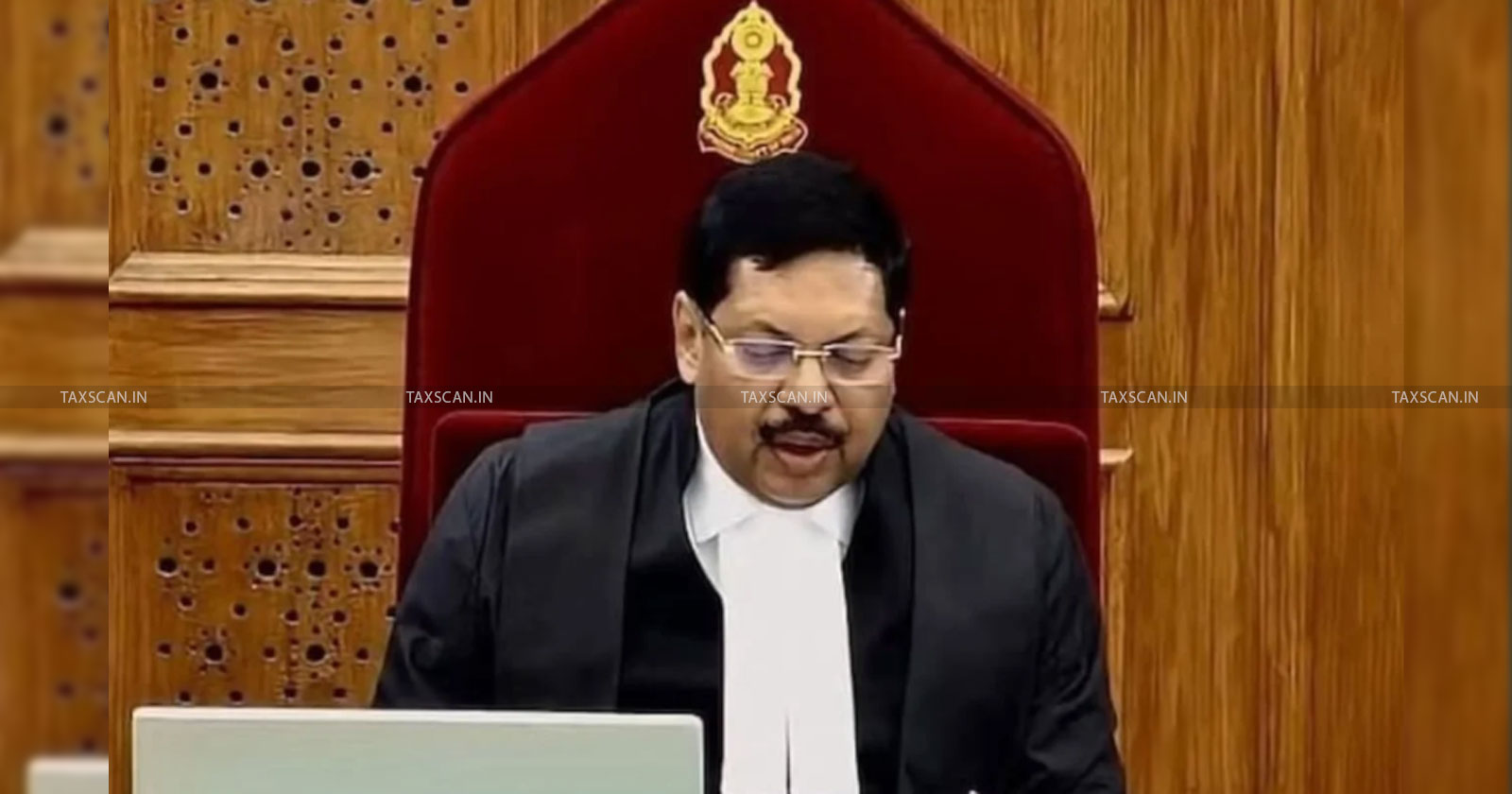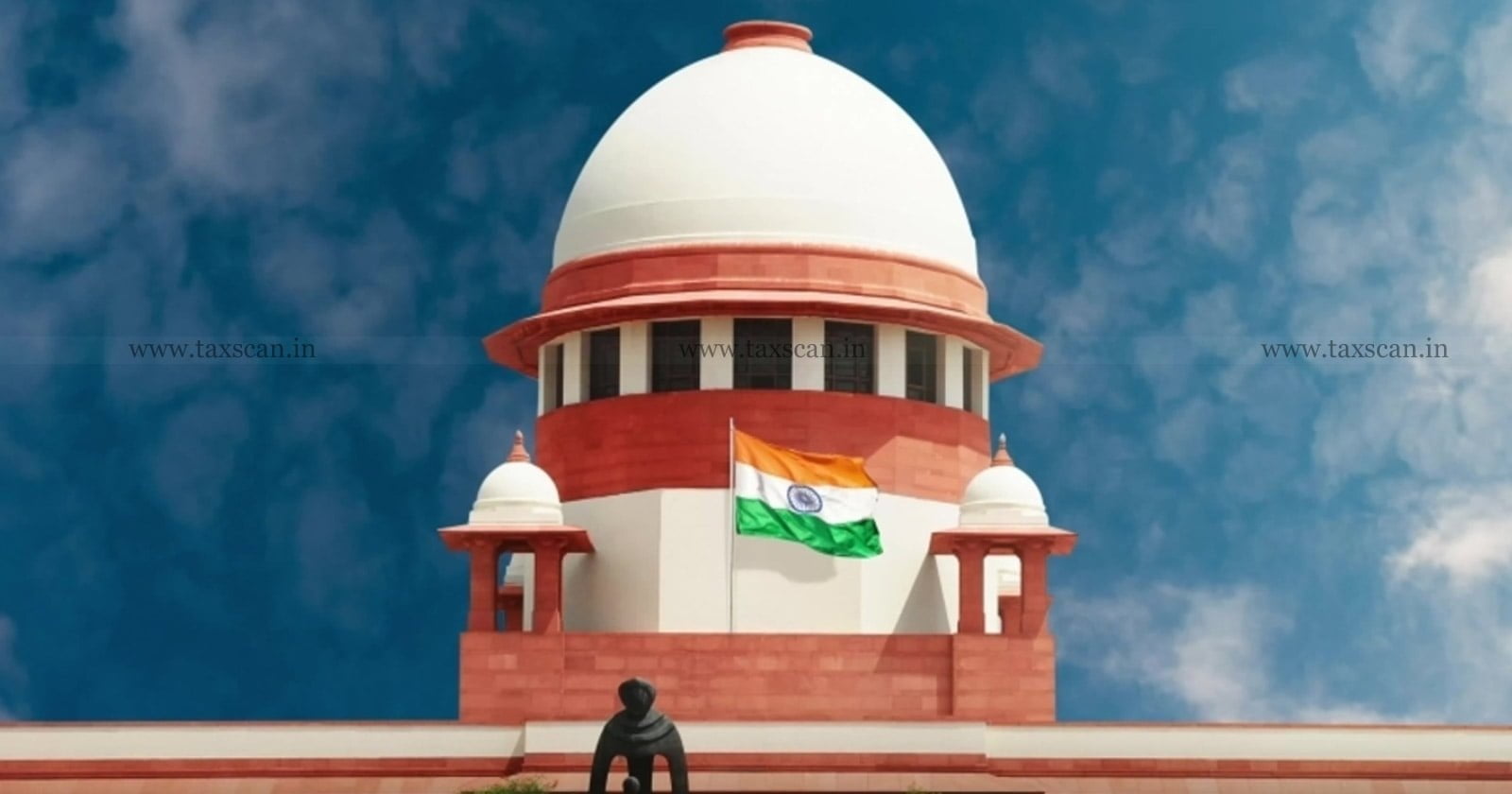No Excise Duty on Pipeline Intermixing of for-PDS Kerosene and Petroleum Products: Supreme Court Upholds Relief to Bharat Petroleum [Read Judgement]
The Supreme Court Division Bench found no reason to interfere with the detailed and well-reasoned order passed by the CESTAT
![No Excise Duty on Pipeline Intermixing of for-PDS Kerosene and Petroleum Products: Supreme Court Upholds Relief to Bharat Petroleum [Read Judgement] No Excise Duty on Pipeline Intermixing of for-PDS Kerosene and Petroleum Products: Supreme Court Upholds Relief to Bharat Petroleum [Read Judgement]](https://images.taxscan.in/h-upload/2025/10/08/2094936-excise-duty-pipeline-intermixing-pds-petroleum-products-supreme-court-bharat-petroleum-taxscan.webp)
The Supreme Court of India recently upheld a decision by the Mumbai Bench of the Customs, Excise & Service Tax Appellate Tribunal (CESTAT), by which the Tribunal granted excise duty relief to Bharat Petroleum Corporation Ltd. (BPCL) by holding that the intermixing of kerosene cleared for the Public Distribution System (PDS) with other petroleum products during pipeline transportation is an inevitable technical process and thus cannot attract excise duty.
 Also Read: Advocate Attempts Shoe Attack on CJI Gavai in Supreme Court, BCI Orders Immediate Suspension
Also Read: Advocate Attempts Shoe Attack on CJI Gavai in Supreme Court, BCI Orders Immediate Suspension
The case originated from demands raised by the Excise Department against the Mumbai Refinery of BPCL at Mahul, alleging that Superior Kerosene Oil (SKO), cleared at nil rate of duty under exemption notifications for sale through the PDS lost its exempt status when small quantities became intermixed with High-Speed Diesel (HSD) and Motor Spirit (MS) while they were being transferred in a common pipeline to depots across India.
Before the CESTAT, A.K. Singh, appearing for the Department contended that the intermixed quantity of SKO, not actually reaching the PDS was liable to central excise duty.
 Also Read: Personal Hearing in GST Cases: Supreme Court Dismisses SLP, Clarifies Section 75(5) Does Not Mandate Three Adjournments
Also Read: Personal Hearing in GST Cases: Supreme Court Dismisses SLP, Clarifies Section 75(5) Does Not Mandate Three Adjournments
Gopal Mundra and Ginita Bodhani appeared for BPCL and submitted among other contentions that the intermixing takes place post clearance of the goods and that such pipeline transfer is mandated as per policy. The counsel also relied on the order of the CESTAT Chandigarh in Hindustan Petroleum Corporation Ltd. vs. Commissioner of Central Excise, Ludhiana and HPCL Mittal Energy Ltd. vs. Commissioner of Central Excise, Ludhiana (2024)
The CESTAT Bench of Dr. Suvendu Kumar Pati, Member (Judicial) And Anil G. Shakkarwar, Member (Technical) observed that intermixing of petroleum products during continuous pipeline transport is inevitable and beyond the control of the manufacturer; once SKO was cleared for its intended use under the PDS at nil duty, subsequent technical intermixing could not alter its tax status.
 Also Read: Constitutionality of Securities Transaction Tax: Supreme Court to Hear Matter, Issues notice to Centre
Also Read: Constitutionality of Securities Transaction Tax: Supreme Court to Hear Matter, Issues notice to Centre
The Tribunal further relied on the Supreme Court rulings in State of Haryana v. Dalmia Dadri Cement Ltd. (2004) and Nizam Sugar Factory v. CCE (2008) to interpret “for use” in the exemption notification as “intended for use,” holding that the Revenue had failed to establish any diversion or mala fide intent. The CESTAT also ruled that the extended limitation period under Section 11A(4) of the Central Excise Act, 1944, could not be invoked against a Public Sector Undertaking (PSU) like BPCL.
The Supreme Court Bench of Justice Aravind Kumar and Justice N.V. Anjaria found no reason to interfere with the detailed and well-reasoned order passed by the CESTAT and noted that there was no findings that warranted interference with the impugned judgments, thereby confirming complete relief to BPCL and affirming that no excise duty is payable on SKO cleared for PDS merely because a portion becomes intermixed with other fuels during pipeline transfer.
Support our journalism by subscribing to Taxscan premium. Follow us on Telegram for quick updates


